|
This Sunday, the Sunday following Easter, the Church recognizes Divine Mercy Sunday, a day that carries an even greater emphasis in this Year of Mercy as announced by Pope Francis. Divine Mercy Sunday is a day that carries a special significance to my family. In a few weeks, my family will mark the tenth anniversary of the passing of my grandfather, known best to his grandchildren as “Pop-pop.” He was a man of great generosity both to his family and to each of his patients, who he spent his career serving as a cardiologist. He was also a man of great faith, who in his passing left his family with the greatest gift, one of faith in God’s infinite mercy. In the months before his death, as he gradually grew weaker and his cancer spread, he found a great peace in praying the Divine Mercy Chaplet. He was especially fond of praying the chaplet in song and even when he was too weak to say it himself, family and friends would pray it with him. It was widely known that at 3pm each day the television would be tuned to EWTN so he could recite the chaplet. Providentially, a local Catholic film producer was filming a new production of the Divine Mercy Chaplet in song, entitled Generations Unite in Prayer and they were looking to film someone elderly with a devotion to this prayer. Despite concerns over my grandfather’s declining health, he was insistent on being a part of this project and doing whatever he could to help spread the message of Divine Mercy. Also known for his sense of humor, on the day of filming,, Pop-pop remarked, “It’s a good thing Jesus is the star of this show, because I don’t look so good” as the crew captured scenes of our family praying the chaplet at his bedside. Following the filming, my grandfather felt a renewed sense of determination: he wanted to live to see one more Divine Mercy Sunday. Although this was still many weeks away, by the grace of God he lived to see that day. In fact, on Divine Mercy Sunday he insisted on getting out of bed and kneeling before the image of Divine Mercy that hung by his bedside to offer a prayer of thanksgiving with the intercession of St. Faustina. He passed away two days later. I was first introduced to the Chaplet of Divine Mercy when my grandfather was ill and still today I take great comfort in its words, particularly the words to the closing prayer: Eternal God, in whom Mercy is endless and the treasury of compassion inexhaustible, look kindly upon us and increase your Mercy in us that in difficult moments we might not despair nor become despondent, but with great confidence submit ourselves to your holy will, which is love and mercy itself. When facing personal trials I’ve found a great sense of hope in this simple prayer. Hope that whatever challenges I may be facing, God will grant me the peace and perseverance to see it through. Hope that despite my imperfections as a sinner, that I too may share in the glory of the resurrection. And the prayerful hope that death did not have the final word on that April day ten years ago, and that one day our family will join Pop-pop in his eternal reward.
0 Comments
Vivat Jesus! In the proclamation “Jesus lives!” which originates from St. Francis de Sales, the Church finds and experiences for herself the mystery of salvation. This then energizes and animates all her works. Because Christ has risen from the dead, we are assured of a most glorious hope that God loves us and that no trial nor any tribulation can overshadow the truth of such saving grace. Doesn’t it feel so liberating to once again be able to exclaim, “Alleluia!”, or burst into the Gloria at Mass? That innate feeling of wanting to, needing to, and being compelled to praise God in these ways reflects a deeper desire to share this incredible Good News with others—there just isn’t any room for passivity in the Christian life. Certainly, the Resurrection event gained for us the eternal reward in Paradise that we could not achieve ourselves. But to really benefit from it, the experience needs to change us, that is, to make us marvel at God’s merciful love and then continuously reveal that to all the world. Donald Cardinal Wuerl made this observation back in January for the occasion of the dedication the new altar of the Pallottine Seminary at Green Hill, home of the Catholic Apostolate Center: In His command, “Do this in memory of Me,” Jesus invites each one of us into the Mystery of His Death and Resurrection. We’re not just going to be passive bystanders who come to know Him. We’re not just going to be someone who looks on the merry-go-round and says, “Isn’t that wonderful?” We’re invited into the Mystery itself. In doing so, we manifest the glory of the Lord; it is our mission as Christians. As Pope Emeritus Benedict XVI reminded us at his installation Mass, “the purpose of our lives is to reveal God to men.” The Resurrection cannot be confined to a mere moment in history two thousand years ago. All that it accomplished cannot be measured; its effects continue to affect and move us even now. Today we are truly experiencing the great joy that the Risen Lord promised His disciples. And this authentic joy does not fade in times of mourning or despair. Especially in those times, we can look up in hope, knowing the same Risen Christ is with us at every moment to offer courage and mercy. It is in this reality—not mere speech and daydreams—that the Church exists and works from. As Benedict XVI continued, “The Church is alive — she is alive because Christ is alive, because he is truly risen.” As Christians, we bear the Name of the Savior through Baptism. We invite the world to encounter Christ, Whose presence we manifest through the charitable actions of our lives. Just as we share with one another the light from the Paschal candle during the Easter Vigil, so, too, do we share the light of hope and faith with those in darkness. By the grace of God and the support of each other, may we, at every moment of our lives, join with the whole Church and the heavenly host to praise God for His mercy and goodness. As Timothy Cardinal Dolan reminded us “‘Our Savior, Jesus Christ, has destroyed death, and brought us light and life!’ No wonder we [reply], ‘Alleluia!’” “Behold the wood of the cross on which hung the salvation of the world.” This line is chanted three times by the celebrant of the Good Friday service; after each time, a covered cross or crucifix is partially unveiled until after the third time when the full cross or crucifix is exposed. The faithful then are invited to reverence the cross, usually with a kiss.
For many, the most memorable part of the Good Friday liturgy is the reading of the Passion Narrative. We are once more transported back 2,000 years to relive the moment when “[God] gave his only Son, so that everyone who believes in him might not perish but might have eternal life” (John 3:16). The moment that has always stood out to me is the Veneration of the Cross. To me, the simple act of embracing the Cross of Christ is one of the most beautiful things one can experience. The Veneration of the Cross has been celebrated in Rome since the seventh century and in Jerusalem since the fifth. It has since become a universal practice in the Church. Many can recall the image of a priest, bishop, and even the pope humbling himself before what was once the symbol of oppression, seeing it instead as a symbol of hope and life. When we embrace the cross and reverence it with a kiss, we in effect adore Christ himself, for the cross is the representation of Christ and his sacrifice. In that act, we then embrace the cross as our own and give ourselves fully to our Lord and Savior. Pope Benedict once remarked, “Entrusting ourselves to Christ, we lose nothing, we gain everything. In his hands our life acquires its true meaning.” Thus, when we embrace the cross, we accept that, through Christ’s sacrifice, we are saved and able to enter into eternal life. We also transform the cross from that instrument of death into the method by which we can now enter God’s heavenly kingdom. As the phrase used in the Stations of the Cross states, “We adore you, O Christ, and we praise you…because by your cross you redeemed the world.” In venerating the Cross of Christ, we make those words active in our own lives. We leave the church on Good Friday knowing that we have reaffirmed our faith in the Lord’s redeeming power. We join ourselves with those who were present at that first Good Friday and believed that the story of salvation did not end that day. In fact, it was only the beginning. And so, when the celebrant chants, “Behold the wood of the cross on which hung the salvation of the world,” let us, with all our heart respond, “Come, let us adore.” For more Lenten Resources, please click here. Victor David is a collaborator with the Catholic Apostolate Center and a staff member at The Catholic University of America in Washington, DC. In my 2nd grade class, the students are preparing to celebrate First Eucharist. They are busy learning all they can about their Catholic faith, the parts of the Mass, prayers and responses, forgiveness and preparing their hearts, and most of all: about the Eucharist itself. They are beginning to understand the purpose behind the Mass and why we say certain responses and kneel or genuflect at particular times. My class was recently interviewed by a couple of 8th graders about expectations they have for receiving First Communion. Some responses were priceless, such as:
“I’m nervous to forget to say, AMEN” and “I’m afraid to drop the host.” There were more practical answers such as: “I am excited to eat in church” and “I’m nervous to have 5,000 eyes on me!” My students are still learning, and during this time of preparation, I want to be sure they understand how they can reach intimacy with Christ in the Eucharist. With the Easter Triduum beginning on Thursday at the Last Supper, there is no better time than now to focus on the Eucharist. In both the Gospel of Luke and the Gospel of Matthew, we learn about the Last Supper Jesus had with his disciples. Luke 22:19 says, “And he took bread, gave thanks and broke it, and gave it to them, saying, ‘This is my body given for you; do this in remembrance of me.’” In Matthew 26:27-29, the Lord says something similar when he blesses the cup saying, “...and when he had given thanks, he gave it to them, saying, ‘Drink from it, all of you. This is my blood of the covenant, which is poured out for many for the forgiveness of sins.” We learn and believe that in this highest moment of Mass, in transubstantiation, the bread and wine transform into the Body and Blood of Christ. As I teach my students about the Eucharist, this consecration is the pinnacle moment that they must learn about and understand.The consecration in the context of the Last Supper is something we can all look forward to on Thursday. As Lent draws to a close and the Triduum begins, how prepared are we? My class’s preparation includes the preparation of their hearts through reconciliation. We go to confession as a class at the beginning of Lent, relieving ourselves of the pain and sins we have weighing us down. As we draw nearer to Easter, it is through this penance that we can see God more clearly, grow in intimacy with him, and be ready to receive Christ in the Eucharist. I invite you to consider going to confession before Easter. Although my 2nd graders will continue to learn about their faith and the Eucharist throughout their whole lives, my hope is to prepare them well-enough to make their First Communion as meaningful as possible. Part of this preparation is encouraging personal prayer for these youngsters. As a class, we are beginning to use more and more prayers for specific times in the day. We pray in gratitude or practice intercession. Loyola Press offers an Ignatian Examen for reflection each day that has a variety of topics and purposes. They are all calming and peaceful, with background music and an ending prayer. The Hail Mary, the Our Father, or the Glory Be help us learn more about how Jesus taught us to pray and other traditional Catholic prayers to know by heart. We also have personal prayer, taking quiet time to talk to God and ask him for help or to give strength to someone in pain. Finally, we will be learning a Communion prayer as we get closer to April and May to prepare the class to receive Christ for the first time. My Communion Prayer Dear God, I know that You give me many gifts. The gift of Your Son, Jesus Christ in Holy Communion is the greatest of all. How can I ever thank You enough for this special gift? At Mass we are called to be like Jesus, by loving and serving one another in the world. As I become more like Him, please continue to help me. Show me the places and ways that I can bring Your love, kindness, and peace to others.... in my family, in my neighborhood, in my community, with my friends. (Moment of silent reflection) Amen. Teaching 2nd grade religion has taught me more about my faith than I ever thought was possible. Now, I urge you to use these last few days of Lent and the Triduum to use prayer and penance to grow in closeness to God through the Eucharist. Like one of my students said, “I can’t wait to get communion because then I’m totally part of Mass and I don’t have to just be blessed with my arms crossed.” We are often our own harshest critics. This is the case in my own life, and sometimes I look up in exasperation at God and tell Him I’m tired…of myself. In our culture of busy-ness and perfectionism, high achievement and the constant thirst for more, it’s tempting to balk at our deficiencies, cringe at our weakness, run from our blemishes. How could I have said that? Why did I fail at that again? How have I not learned? These thoughts run through our defeated minds if we forget in this Jubilee of Mercy to be merciful to ourselves. So often, we turn to shame, annoyance and frustration when we fall, sin or come face-to-face with our humanity. I imagine this is how the woman at the well felt as she went to get water at the hottest time of day. Divorced and remarried multiple times, she was seen as unclean by her Samaritan kinsmen. She avoided the other villagers at all costs in order to protect herself from their condemning gaze. There was one gaze, however, that she was powerless against: His. It was a gaze far more surprising than all others. A gaze not of condemnation, but piercing in its persistence and compassion—the gaze of love from God Himself. What must it have felt like to look up in the noon day heat and meet His gaze? What must it have felt like to be seen, known, and loved by the Son of Man? This is Christ’s eternal gaze upon all of us. If you’ve already experience it, you can relate to the Samaritan woman. If not, I invite you to look up from your well and meet Him there. How He waits for us—the Christ! How He goes out to our man-made wells of sin and shame, of selfishness and pride, of indifference and bitterness to meet His children, to remind them that they are loved! He comes to you, to me. The Lover pursues His beloved. The Shepherd pursues His sheep. The Father pursues the prodigal son. God desires us. Encountering this love and mercy leaves no room for indifference or fear. We long to reciprocate this love, as the woman at the well did. She left her jar, the very reason she came to the well, in order to proclaim the Christ to her entire town—the town she had avoided at all costs (cf Jn 4:28-29). This is radical. This is the conversion that results from the beautiful and delicate balance of love and justice, mercy, and truth. We are loved even when we have deemed ourselves unlovable. We are desired even when we remain indifferent. We are sought when we hide. And today we are being called and sent forth to bring His gaze to the nations. Why? Because we were created for greatness, though we are pilgrims living in a fallen world. We were created for life with God Himself; to live blameless, spotless, white as snow. Yet we live in a world in which we are often warring against God, ourselves, one another, and nature. In this Jubilee of Mercy, we are reminded that our scars or weaknesses should not scandalize us to the point of paralyzation or despair. We can no longer be imprisoned by our sin because we have a Savior—one who calls us to transfiguration and gives us the hope of the Resurrection, which we celebrate in 10 days. The piercing love of God elevates us to be salt of the earth, light to the nations. If we live in the certainty of being loved, we cannot refuse to be gentle and merciful to ourselves. Only in receiving His merciful love each day will we be able to love ourselves purely in the way that enables us to purely love our fallen brothers and sisters. Rather than cower at our weakness, going to the well at noon, let us embrace it—giving ourselves fully and completely to the One who can transform our weakness for His glory! May we cling to Him, not to ourselves, surrendering our folly to His wisdom, our sin to His perfection, our indifference to His love, our brokenness to His wholeness. Leave your jar at the well and go forth. For more resources to guide you throughout this Jubilee of Mercy, click here.
Ever struggle with attempting to find God in your daily life? Do you ever feel that you are just so busy that engaging in a personal relationship with the Lord seems out of the question? Do you struggle in attempting to recognize how God is acting in your life, at work, or in the classroom? I promise, you are not alone. Many of us struggle with finding God not only in the ordinary, but also in our busy lives. Different saints, such as St. Francis de Sales, even recognized how at times it can be challenging to find God’s presence in the ordinary. Surprising right?! Sometimes, it seems so difficult to find God in the mundane or in the office. Yet, this is exactly where we can find God’s presence—in the ordinary! St. Francis De Sales, a Doctor of the Church and inspiration of the ever popular Salesian Spirituality, wrote in his famed Introduction to the Devout Life that “It is an error, or rather a heresy, to wish to banish the devout life from the regiment of soldiers, the mechanic’s shop, the court of princes, or the home of married people… Wherever we may be, we can and should aspire to a perfect life.” St. Francis De Sales advocates the notion that everyone is called to be in relationship with God no matter their specific state in life. For St. Francis De Sales, the soldier, the mechanic, the government officials, and the married couple—any lay person—can find God in the ordinary. God meets each of us were we are; his presence is not restricted to a building. Nevertheless, what are some practical ways in which we can find God in the ordinary? Again, St. Francis de Sales has more wisdom for us from his Introduction to the Devout Life, writing that “occasions do not often present themselves for the exercise of fortitude, magnanimity, and great generosity, but meekness, temperance, integrity, and humility are virtues that must mark all our actions in life.” When we refrain from boasting about our accomplishments in the office or when we refrain from lying to our professor regarding a string of absences from class, we are encountering God in the ordinary. When we simply take a minute in the beginning of the morning and offer our day to God, we are encountering God in the ordinary. When we take a moment to recognize a coworker’s kindness to a stranger or a fellow student’s concern for a student falling behind in class, we are encountering God in the ordinary. Encountering God is not solely done on in the pews or on the mountaintop. Instead, we can encounter God in the ordinary, in our everyday life. To learn more about seeing God in the ordinary, please visit our Prayer Resources page by clicking here. Paul boldly reminds Christians, “our citizenship is in heaven” (Phil 3:20). In a sense, our single most political act on this earth is not who we vote for in the next election, but our Baptism. In baptism, we discover our truest identity as adopted sons and daughters of God, and together become “one in Christ Jesus” (Galatians 3:27-28). But as citizens of heaven, we also live as “aliens and sojourners” (1 Peter 2:11). This Jubilee Year of Mercy issues an invitation and challenge for Catholics to transform what society regards as ‘political problems with political solutions’ into encounters with God’s grace and mercy. Borrowing a phrase from Biblical scholar Walter Brueggemann, Christians are not simply called to meet issues with more political machination, but greater “prophetic imagination.” When Christians do not actively imagine and enact truthful and merciful alternatives to social evils, pragmatism and deceit can lay deep roots in our society. In the Book of Leviticus, an important aspect of the ancient Jubilee Year involves extending mercy to a group of people the Bible calls resident aliens, outsiders living among the Israelites who belonged to no tribe. They occupied a vulnerable position in society and were not always welcomed, but God’s law was meant to protect them as legal equals (cf. Ex 12:49; Lev 24:22). Today our Church takes seriously the responsibility to stand up for the human dignity of migrants and refugees. While speaking on the topic of pastoral care for migrants and itinerant peoples, Pope Francis expressed his hope that, “our Christian communities really be places of hospitality, listening, and communion.” Hospitality In Leviticus 19, God instructs Moses and the Israelites about harvesting the land, not to “reap the field to its very edge,” for, “… these things you shall leave for the poor and the alien” (Lev 19:9,10, cf. Deut 24:20-21). A problem many of us succumb to in a consumerist culture (myself included) is living without margin. We max out our schedules and credit cards so that we simply cannot make room in our day or budget to give freely, or receive someone in need when opportunity arises. As Pope Francis recently put it, “If the Jubilee doesn’t arrive to the pockets, it’s not a true Jubilee.” The scripture and tradition of the Church prescribe counter-cultural hospitality toward the stranger. Exemplified in monastic tradition, the Rule of Benedict in Chapter 53 puts forth Jesus’ words, “Let all guests who arrive be received like Christ” (Matthew 25:35). Moreover, in a culture where nearly every human experience is branded and marketed, we should not confuse hospitality with customer service. Listening “Listen… and administer true justice to both parties even if one of them is a resident alien… Give ear to the lowly and to the great alike” (Deut 1:16,17). There is no justice or mercy without listening to the oppressed and marginalized. The theologian Dietrich Bonhoeffer once wrote: “The first service that one owes to others in the fellowship consists in listening to them. . . It is God’s love for us that He not only gave us His Word but also lends us His ear. . . Many people are looking for an ear that will listen. They do not find it among Christians, because these Christians are talking where they should be listening. But he who can no longer listen to his brother will soon be no longer listening to God either” (Life Together. New York: Harper & Row). When we listen, we may even discover someone who is no longer a stranger but a friend. Communion God had to remind the Israelites, “You shall love the alien as yourself; for you too were once aliens in the land of Egypt,” (Lev 19:34). The New Testament reiterates: “Once you were ‘no people’ but now you are ‘God’s people’; you ‘had not received mercy,’ but now you have received mercy” (1 Peter 2:10). Pope Francis powerfully stated that communion cannot exist where Christians seek to build walls instead of bridges. Communion happens through solidarity and accompaniment, not the gospel of, “God helps those who help themselves.” As Catholics, our communion is best expressed through the Holy Eucharist, where we “participate with the whole community in the Lord’s own sacrifice” (CCC 1322). Recent celebrations of the Mass across the USA-Mexico border witness the power of the Eucharist to unite Christians separated along national/political divides. In a climate of fear and self-preservation, the Eucharist consumes us, lest we consume each other. Political debates will rage this year. As Christians, let us consider how the Jubilee of Mercy cannot be separated from our particular concern for migrants and refugees in the form of the prophetic witness of Christian hospitality, listening, and communion. To learn more about the Jubilee of Mercy, visit our free resource page by clicking here. Recently, during a parish mission for Lent that focused on the Jubilee of Mercy, I found that a simple review of the corporal and spiritual works of mercy had a profound impact on those who participated. My short reflections on the works of mercy were not meant to be at time of group guilt about what had not been done, but instead provided an opportunity for the participants and for me to reflect, and then - hopefully - act. In the reaction of the participants, I witnessed a revival of faith and a rekindling of charity that, I believe, will lead to deeper living as apostles or missionary disciples. God's mercy and love are offered not just for a moment, but forever. Lent is a perfect time to experience again God's mercy and live well the works of mercy. As we continue through the season of Lent, we strive to know Jesus Christ more fully through the Lenten disciplines of prayer, fasting, and almsgiving. Sometimes almsgiving is seen as something simply monetary. If almsgiving, however, is not only related to our treasure, but also to our time and talent, then we can see how easily the corporal and spiritual works of mercy can help us express all three aspects of this Lenten practice. Pope Francis invites us to reflect on the corporal and spiritual works of mercy in his Lenten Message, "For all of us, then, the season of Lent in this Jubilee Year is a favorable time to overcome our existential alienation by listening to God's word and by practicing the works of mercy. In the corporal works of mercy we touch the flesh of Christ in our brothers and sisters who need to be fed, clothed, sheltered, visited; in the spiritual works of mercy - counsel, instruction, forgiveness, admonishment and prayer - we touch more directly our own sinfulness." May the charity of Christ urge us on to live well the works of mercy!
Usually at this point during Lent I am looking forward to the Feast of St. Joseph as a brief respite from my Lenten sacrifices. However, this year his Feast Day is on Palm Sunday weekend. With this early timing, it is easy for us to forget about his Feast Day. While more than a week away, I wanted to take some time to reflect on Joseph and remind ourselves of the example he serves for us each and every day. Today’s Gospel (Jn 5:1-16) describes one of Jesus’ miracles in which he commands a man to “Rise, take up your mat, and walk.” Without question the man stands up, picks up his mat, and walks away telling others of the good news. This man had no reason to trust Jesus or even think that he could ever walk again, but he believed and he obeyed. This reminds me of St. Joseph who, without question, listened to God’s call. Without question, Joseph stood by Mary and Jesus as husband, father, and protector. God asks nothing less of us in our own lives and Lent is a perfect time to reflect on whether we are listening to God’s call to “believe and obey.” We can start by going to confession. An examination of conscience can help us to see where we are not believing and obeying, while confession also gives us that clean slate that we so desperately need in order to hear God’s voice in our lives. Once we have prepared ourselves to receive God’s word, we are able to more fully align our hearts to Christ and follow in his footsteps. But this is not an easy thing to do. We will go to confession many times over the course of our lives so that we can once again learn to “believe and obey.” But this is not something that we have to do alone. Not only do we have Christ and the entire Catholic Church on our side, we also have the saints. In particular, St. Joseph is a beautiful example of living a life of faith and obedience to the will of God, as evidenced by his willingness to follow God’s plan even when he didn’t know the outcome. If we learn to live our lives as he did, then I guarantee we will continue to move closer to Christ. As I mentioned before, the Feast of St. Joseph is two weekends from now. I encourage you to look to him for guidance and strength during your Lenten journey. His silent faith, his dedication to the Holy Family, and his role in forming and raising the Son of God gives us a wonderful example by which to form ourselves to Christ and to believe and obey without question. As we approach his Feast Day, I also invite you to join me in praying a novena to St. Joseph that we may learn to silence our hearts and listen to the Word of God during this Lenten season. This nine-day series of prayers helps us to focus our minds and hearts on specific intentions and invites St. Joseph in a special way to intercede for us. Click here to join me in praying the novena to St. Joseph. “Let us allow ourselves to be filled with St. Joseph’s silence!” -Pope Emeritus Benedict, Angelus, December 2005 Nicholas Shields is a Young Professional in Washington, D.C
How is your posture? Whether I’m teaching a relaxation and scripture meditation class, aerobics, floor and core work, strength and balance, or working one-on-one with an individual, I am constantly reminding my students to, “check in with your posture.” Are your feet firmly planted in the ground? Are you engaging your thighs? Is your pelvis tilted under and your spine lengthened? Is your core engaged? Are your shoulders rolled down and back? Is your head and neck lifted? Where is your focus? I’m sure that any of my students will tell you that, at first, it is slightly unnerving to hear constantly. Soon, however, we each come to realize what an important role proper posture plays, not only in our everyday lives, but especially during our exercises. The simplest of movements can be made more challenging and more beneficial for the whole body and mind by engaging and practicing proper posture. Through the effort of involving the whole body, we are able to improve our balance, kinesthetic awareness, and better focus on isolating the specific muscles that we are moving or working. When we are able to unite that kind of movement awareness with the sacrifice of an intention or prayer, powerful things can happen within and through us. Although it is hard to believe, we are just about half way through our Lenten journey. It’s time to check in with our spiritual posture. Are we engaging our Lenten spiritual muscles of prayer, fasting, and almsgiving? Is our human pride tucked under and our humility engaged? Are our shoulders rolled back and our head held high during our offerings of sacrifice so as not to draw attention to our sacrificial efforts? (Matthew 6:5-8) Or are we simply going through the motions, executing the exercise, without engaging our whole selves? We are all called to be saints within our own right. Becoming a saint and bringing the glory of God and the saving power of Christ into the world is what we were created to do. That is our Eastertide. That is what we are “training” for. Lent is not meant to be business as usual. Therefore, our spiritual posture becomes even more relevant and important as we challenge, exercise, and train ourselves for what we are called to be. There may be times in our lives where going through the motions is necessary. Sometimes, it may be all we can do—and that’s okay. However, Lent is our time to persevere. Lent is our training season. What do we need to remove from our lives to reach a healthier state spiritually, emotionally, mentally, and physically? What are the things we need to hang onto or strengthen in order to reach our Easter goal? As we assess our journey thus far, perhaps we can call upon the assistance and intercession of St. Katherine Drexel as we honor her on her Feast Day today. Saint Katherine Drexel beautifully expresses that our entire being and all that we do, from work to play, to keeping ourselves healthy, should be offered back to our heavenly Father for His glory. For it is only through Him that we receive our spirit and our faculties. It is through Him and our offerings to Him that we receive the strength and ability to complete the work that He calls us to and to become the saints we are called to be. In her personal writings, she prayed: “Yes, my Lord and my God Jesus, to you I commend my spirit, my soul with its faculties, my body with its senses, my heart with its affections, all that I have, and all that I am. Dispose of me absolutely, in everything, according to your will. From now on, dearest Jesus, may everything outside you be a matter of indifference to me, provided only I accomplish your will and advance in your love. O Jesus, I love you and your Mother and abandon myself to your love for time and eternity.” Check in with your posture. Do the hard work and don’t be afraid to sweat your way through the rest of Lent. Unite your work, your dedication, and your sacrifices with the saints and angels and call on their intersession for strength. Stay focused on the end result, the finish line, the Easter joy. For more resources to help your spiritual Lenten posture, click here. At the graduate school I attend, there is a simple chapel on the second basement level. I typically find myself the most comfortable sitting in the back of the chapel for daily Mass. One day, I scooted in a minute before Mass started, leaving the only space for me in the front pew (GASP, I know!). As I settled into the pew, I looked up, seeing the front of the chapel much closer and in a new way. In front of me was the reason why sitting in the back was more comfortable. I faced His dislocated shoulders, His God/Man shoulders bloody, His bowed head spurned with thorns, His emaciated figure hanging, His flesh slashed, His knees worn from His falls, His side pierced, and those nailed hands, those feet. I could not keep my eyes from Him and I could not comprehend, “Why?” I get quite used to the pretty crosses, the ones that are bedazzled, the Southern rustic ones, the ornate, or the ones where He is not even present and His suffering can be watered down to a pretty symbol. You could say I get comfortable with them. The Crucifix in this small, simple chapel does not forget His suffering. No, it is displayed loudly, proudly next to the tabernacle, right next to the Eucharistic Table. His sacrifice is not reduced. The scandal of the King hanging on the cross is revered, and yet I worked hard to keep my eyes from the weight of the cross. Later in the day, I found myself in the chapel alone. This time, I slowly made my way up to the large Crucifix. I realized my heart was pounding loudly in my chest. I knelt underneath the Crucifix. I looked up to see His head bowed down. I saw His sacrifice for the first time. And mostly, I was in a disposition of responsibility for the first time, and the weight was crushing. I could not hide. This Lenten season, I am spending more time kneeling in front of this Crucifix, facing my sins and facing my Savior. I encourage you to do the same! You see, by beginning to take in the weight of His sacrifice, the next questions that will arise are, “Why me? Why this sacrifice in this way?” As you ponder His wounds, His shoulders, His crown, His side, His hands and feet, you will hear in a still voice, “Love, Love, Deep Abiding Love for you.” Taking in the shocking death of the Savior only leads us to grasping the true reason of this Lenten journey: the agape love of the Christ. How can we bear our own crosses, the struggles and weaknesses that are a part of the human condition, if we haven’t grasped the passionate love He has for His children? We may try and hide it, water it down, bedazzle it, but the Crucifix is Divine Love thinking of you. “Look into My Heart and see there the love and mercy which I have for humankind, and especially for sinners. Look, and enter into My Passion.” –Jesus to St. Faustina (Diary 1663) For more Lenten resources, please click here. To learn more about the Year of Mercy, please click here. |
Details
Archives
July 2024
Categories
All
|
About |
Media |
© COPYRIGHT 2024 | ALL RIGHTS RESERVED

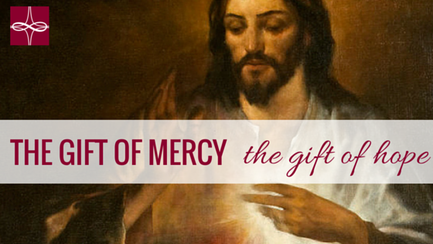

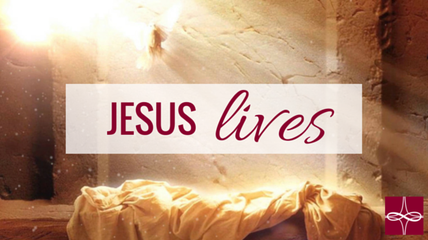

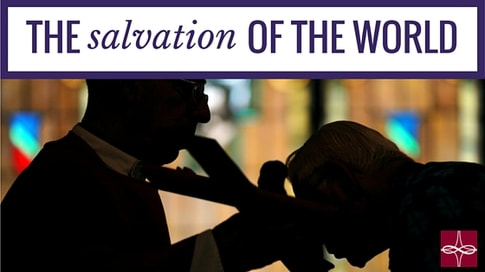
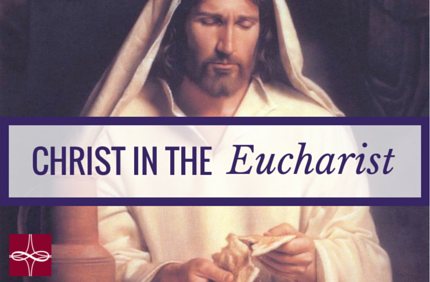

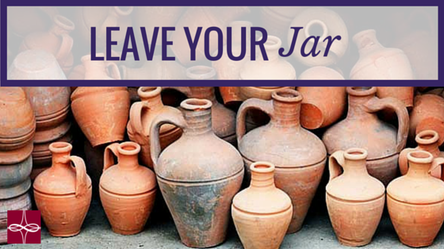








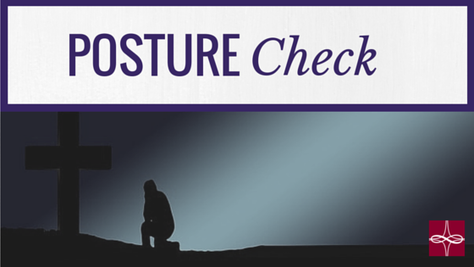

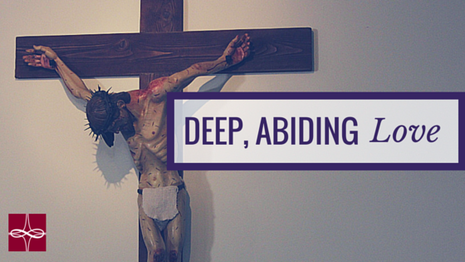

 RSS Feed
RSS Feed